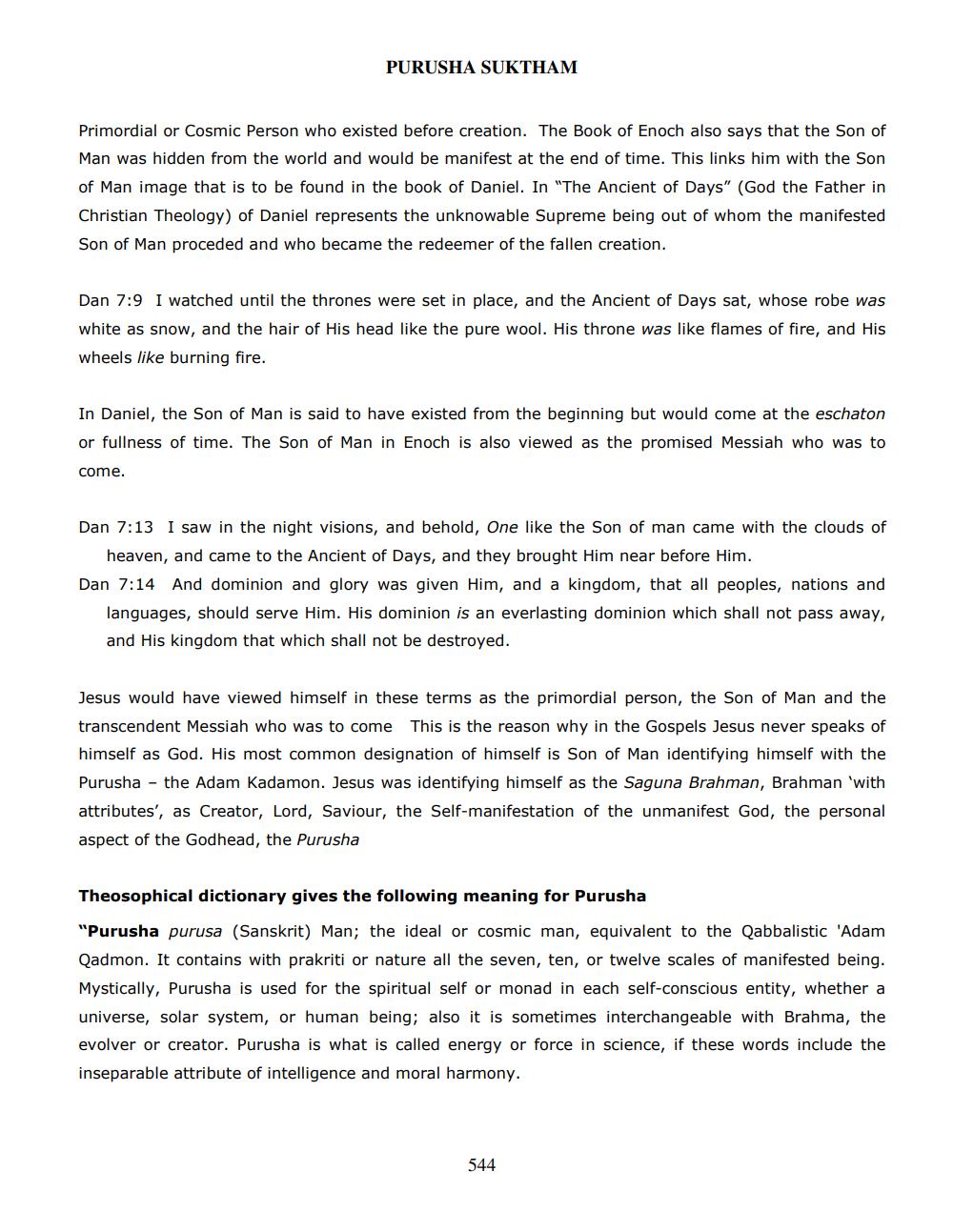________________
PURUSHA SUKTHAM
Primordial or Cosmic Person who existed before creation. The Book of Enoch also says that the Son of Man was hidden from the world and would be manifest at the end of time. This links him with the Son of Man image that is to be found in the book of Daniel. In "The Ancient of Days" (God the Father in Christian Theology) of Daniel represents the unknowable Supreme being out of whom the manifested Son of Man proceded and who became the redeemer of the fallen creation.
Dan 7:9 I watched until the thrones were set in place, and the Ancient of Days sat, whose robe was white as snow, and the hair of His head like the pure wool. His throne was like flames of fire, and His wheels like burning fire.
In Daniel, the Son of Man is said to have existed from the beginning but would come at the eschaton or fullness of time. The Son of Man in Enoch is also viewed as the promised Messiah who was to come.
Dan 7:13 I saw in the night visions, and behold, One like the Son of man came with the clouds of heaven, and came to the Ancient of Days, and they brought Him near before Him.
Dan 7:14 And dominion and glory was given Him, and a kingdom, that all peoples, nations and languages, should serve Him. His dominion is an everlasting dominion which shall not pass away, and His kingdom that which shall not be destroyed.
Jesus would have viewed himself in these terms as the primordial person, the Son of Man and the transcendent Messiah who was to come This is the reason why in the Gospels Jesus never speaks of himself as God. His most common designation of himself is Son of Man identifying himself with the Purusha the Adam Kadamon. Jesus was identifying himself as the Saguna Brahman, Brahman 'with attributes', as Creator, Lord, Saviour, the Self-manifestation of the unmanifest God, the personal aspect of the Godhead, the Purusha
Theosophical dictionary gives the following meaning for Purusha
"Purusha purusa (Sanskrit) Man; the ideal or cosmic man, equivalent to the Qabbalistic 'Adam Qadmon. It contains with prakriti or nature all the seven, ten, or twelve scales of manifested being. Mystically, Purusha is used for the spiritual self or monad in each self-conscious entity, whether a universe, solar system, or human being; also it is sometimes interchangeable with Brahma, the evolver or creator. Purusha is what is called energy or force in science, if these words include the inseparable attribute of intelligence and moral harmony.
544




